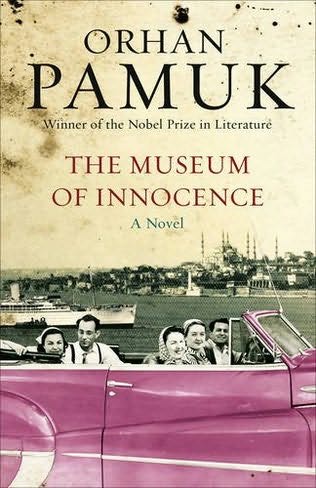 What I Loved was this book. No question, it’s one of my favourite for 2010. It was intense, emotional, exhausting, sublime and depressing. The writing – magnificent. The characters – realistic and resonating. The grief was so realistic and draining that at times I could only read a few pages before having to put the book down and digest the raw turmoil that the characters were enduring. Rather than giving anything more away, I thought that I would just leave you with a few of quotes from the novel which have stayed with me.
What I Loved was this book. No question, it’s one of my favourite for 2010. It was intense, emotional, exhausting, sublime and depressing. The writing – magnificent. The characters – realistic and resonating. The grief was so realistic and draining that at times I could only read a few pages before having to put the book down and digest the raw turmoil that the characters were enduring. Rather than giving anything more away, I thought that I would just leave you with a few of quotes from the novel which have stayed with me.
For me, I was taken in by this novel from its opening:
“Yesterday I found Violet’s letters to Bill. They were hidden between the pages of one of his books and came tumbling out and fell to the floor. I had known about the letters for years, but neither Bill nor Violet had ever told me what was in them. What they did tell me was that minutes after reading the fifth and last letter, Bill changed his mind about his marriage to Lucille, walked out the door of the building on Greene Street, and headed straight for Violet’s apartment in the East Village … When I put the letters down, I knew that I would start writing this book today.”
It is this paradigm that cloaks the novel and through its telling the background to this moment becomes painfully clear.
I won’t spoil the story, but a quote from later in the book sums up the intensity of the themes:
“equating horror with the inhuman has always struck me as convenient but fallacious, if only because I was born into a century that should have ended such talk for good. For me, the lamp became the sign not of the inhuman but of the all-too-human, the lapse or break that occurs in people when empathy is gone, when others aren’t a part of us anymore but are turned into things. There is genuine irony in the fact that my empathy for Mark vanished at the moment when I understood that he had not a shred of that quality in himself.”
This book gave me goosebumps. I am in awe of the magnificence of this prose and impressed by the fact that this author clearly expects her readers to savour every word of the text, to mull over each sentence and to revel in the grace of this novel… “what was unwritten then is inscribed into what I call myself. The longer I live, the more convinced I am that when I say ‘I’, I am really saying ‘we’…”
I will definitely be reading more of this author’s work!














Yes, yes, exhausting and draining. It’s odd how we love this book for that quality. Hustvedt’s a genius, and I say that having only read two of her books, haha.
Yes, bizarre, isn’t it? I found her insights into art fascinating and I think that the brilliance, in part, lies in the parallels she establishes between the art and the lives of her characters.
That’s another thing — and this book is so lush, it’s difficult to encapsulate every point about it, haha: The art talk’s just so complex and, well, genius. So detailed, too, how she describes paintings. Hustvedt gives me the goosebumps too. I can’t believe I used to relegate her as just “Paul Auster’s wife.” She gives him a run for his money, especially with the whole identity-blurring thing. What I love abt Siri in comparison to Auster is there’s always this underlying menace and sensuality to her narrative, to her words. I don’t find much shmexy in Paul, hahaha.
I’m yet to read Auster’s NY Trilogy. I read Brooklyn Follies which I think was him and enjoyed it but now that I’ve read Hustvedt I need to revisit Auster. Apparently Hustvedt’s sister has also penned something worth reading.
Oh, I didn’t know Hustvedt had a sister. Since I’ve gone off and read Siri, Auster, and Auster’s ex-wife, why not add to the fold, right? 🙂
Who is the ex-wife??
Lydia Davis. :]